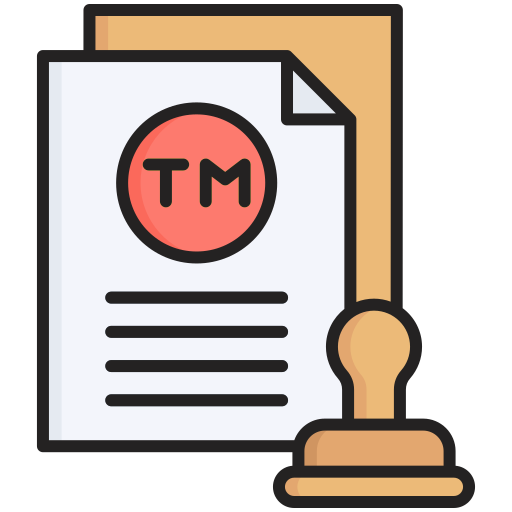Overview of Patent Registration
An individual or an organization applying for intellectual property rights of their product or invention or a legal document granting the inventor sole power to that invention is known as Patent rights. Protect your creative work and get a priority date for your patent of the invention by applying for Patent Registration Online in India - secure exclusive rights and powers over your own invention with sangeethatax!
In the highly competitive business world of today, intellectual property protection became even more important. Patents serve as necessary for safeguarding creative ideas, inventions, and discoveries in addition to giving companies a clear advantage and encouraging growth. However, many business owners overlook the importance of patent registration and undervalue its substantial advantages.
What is a Patent?
Section 2(m) of the Indian Patent Act, 1970, defines a patent as "a patent which is granted for any invention under the provisions of this Act."
The exclusive intellectual property right awarded to the owner of a new concept or a highly developed resolution to an old problem is known as a patent. The patent right is given to the inventor based on the creation and novelty of the good or concept.
The 1970 Patent Act and the 1972 Patent Regulations govern the registration procedure for patents with the Indian government. After the government conducts an inspection to see whether the invention is novel, the inventor may be awarded a patent. Therefore, it is relatively simpler to register a patent in India if the invention is original.
What is Patent Registration?
A patent registration grants the inventor the right to sell, manufacture, use, and process an invention. It stops others from making identical copies of the product. An Indian government-granted patent gives the inventor legal rights that can be cited as proof in court. In India, a patent can be registered for up to 20 years. The necessity to renew or extend the Patent after this term will rely on a number of variables.
In India, why is it Vital to Register patents?
- Keeps your creation safe: An intellectual property tool known as a patent prevents unapproved use of your innovation, protecting it. As the owner, you deter competitors because you possess all the rights.
- Validity: It protects your innovation from infringement for a fixed 20-year period of patent exclusivity.
- Proprietary Rights: Profits for your company are also increased when the patent holder is allowed to charge extra for the innovation.
- Selling or transferring patent rights: You can sell, grant, or franchise your Patent after it has been registered.
- The creator's status: The inventor's credibility will increase if the Patent is registered.
- Sufficient funds: It is quite beneficial for anyone with creative ideas, even if it merely provides a lower royalty rate.
In India, What Can be Patented?
A patent can be obtained for a variety of inventions in India. Among them are:
- Products: This category includes novel and creative physical objects, including manufactured goods, equipment, technologies, chemicals, and medications.
- Methods: New procedures that provide an original means of carrying out a particular task or manufacturing a good are eligible for patent protection. This could include innovative field techniques, industrial methodologies, or manufacturing processes.
- Machines: Patents are available for any novel, functional machines or mechanical inventions, including ones with inventive mechanics or parts.
- Manufactured Goods: Items that are made with a special technique or have distinctive qualities are eligible for patent protection.
- Chemical Formulas: New and creative chemical substances, including pharmaceuticals, are patentable. Biotechnological discoveries: Patents are available for biological advances such as gene mapping, genetic manipulation and new biotechnology procedures.
- Software and digital innovation: Patent protection may be granted for inventions in the area of software and digital innovations, as well as those relating to computers.
Which Inventions Are Not Eligible for Patents?
The following inventions are not eligible for patent registration in India:
- The finding of a scientific principle or natural law
- Creative works such as plays, musicals, plays, or artwork are examples of aesthetic works.
- Plans, policies, or methods for occupying one's mind, playing games, or doing out business inventions potentially dangerous to people, animals, or the environment.
- Inventions that transgress morality or public order.
Criteria to Apply for a Patent
In making an application for a patent, the following standards must be satisfied:
- Novelty: Before the patent application is filed, the innovation must be completely unique and unpublished in India.
- In the absence of obviousness: An invention cannot be a logical progress if it is deemed unexpected or surprising by a subject matter expert.
- Industrial application: For an invention to be beneficial in a particular industry, it must have industrial application.
India's Patent Registration Period of Validity
After a preliminary or final patent registration application is filed, an Indian-registered patent is valid for 20 years. The Patent becomes publicly available after its 20-year period has passed.
Various Patent Offices and Their Authority
There are four patent offices in India where one can apply for patent registration. The jurisdictions of these four offices differ from one another. The applicant's home or place of business, as well as the location of the invention's real genesis, determine which location is relevant for determining jurisdiction for a patent claim. Below is a list of the several offices and their corresponding jurisdictions:
- Mumbai Office
Maharashtra, Gujarat, Madhya Pradesh, Goa, D&D, and Dadar and Nagar Haveli will fall under the Mumbai Office.
- Chennai Office
Mysore, Pondicherry, Lakshadweep, Kerala, Tamil Nadu, Andhra Pradesh, and Minicoy will fall under the Chennai Office.
- New Delhi Office
The New Delhi Office will be responsible for the states of Haryana, Himachal Pradesh, Jammu and Kashmir, Punjab, Rajasthan, Uttar Pradesh, Chandigarh, and Delhi.
- Kolkata Office
India's remaining regions will be governed by the Kolkata Office.
Who is Allowed to Register a Patent?
Several types of persons and entities in India are entitled to apply for patent registration, as listed below,
- The actual and original creator of every method or product.
- The rightful owner of the original and authentic inventor of any process or product.
- In the event that the product or process's original inventor passes away, both the assignee and their attorney might submit a claim on their behalf for patent registration.
Where to Apply for Patents?
It is filed with Form-1, a provisional or complete specification, and the necessary fee at the relevant patent office. The jurisdiction of a patent office is determined by the following factors:
- Location of the applicant's home, place of business, or both (first mentioned applicant in the case of joint applications).
- The location of the invention's birth.
- If the applicant (a foreign applicant) does not have a company or place of residence in India, they will provide their address for service in India.
Forms to be Filed
|
Form |
Purpose |
|
Form-1
|
One of the fundamental forms for patent registration is this one. The applicant's name, address, and a few other very basic facts must be entered into this form. |
|
Form-2
|
The invention title must be submitted using Form-2, followed by the applicant's name, address, nationality, and other details in the preamble to the description. This will make clear whether the patent application is full or provisional. |
|
Form-3
|
This form has to do with the undertaking and statement. This form must be submitted by the applicant either along with their application for patent registration or within six months after that application. |
|
Form-5
|
This is used to identify the creators of the material that the current application is attempting to protect. Anything left out of the patent application will stay unclaimed and available to the general public. Therefore, don't let anything about your method or product go unclaimed. |
|
Form-26
|
If you employ a lawyer to file a patent registration application on your behalf, this form will come in handy. This essentially discusses "Power of Attorney." |
|
Form- 9
|
The procedure of applying for a patent is typically drawn out, but if you would like it sooner, you can use Form-9 to request early publication. |
|
Form-18
|
Since the examination procedure is not automatic, a request for it must also be submitted. It must be completed within 48 months after the application's filing date. On behalf of the applicant, someone other than the applicant may also take the same action. Whether or not the innovation qualifies for a patent, the examination is always conducted. |
|
Form -28 |
This specific form pertains specifically to startups and small business enterprises. It must be filed. |
The Documentation Needed to Register a Patent in India
The following paperwork is required in order to submit an application for patent registration in India:
- Complete Specifications: Form-2.
- Patent Registration Application: Form-1.
- Provisional Specifications: Form-1 in the event that complete specifications are not available.
- Declarative Statement and Promise: Form-3.
- Inventor's Declaration: A formal Form-5 statement from the inventor outlining the particulars and novelty of the invention.
- Proof of Right: Documentation from the inventor confirming that the applicant qualifies to file an application for patent registration.
- Power of Authority: Form-26, a power of authority, is necessary if a patent agent or legal representative is submitting the patent application.
- Priority papers: It is essential to submit priority papers for convention applications (from the Paris Convention) or national phase applications under the PCT (Patent Cooperation Treaty). These may be sent with the first submission or within the first eighteen months following the priority date.
- Permission from the National Biodiversity Authority: Getting approval from the NBA is required if the proposal uses biological material that was obtained from India.
- The source of biological material: the patent application should specify where it comes from if any biological material is mentioned in the specifications.
The Procedure of Patent Registration in India
In order to obtain a patent in India, it is necessary to carry out an intensive search for patents and then conclude with the issuance of certificates of registration. The Indian patent registration procedure is broken down as follows:
Step 1: Searching for patents
Conduct a thorough patent search as the first step in determining whether the innovation is original. Looking up the invention's patentability. It is wise to conduct a comprehensive investigation into patentability to ascertain the possibility of obtaining a patent prior to submitting an application for one in India. To ascertain patentability, visit https://iprsearch.ipindia.gov.in/publicsearch. Remember that you don't need to do this step alone.
Step 2: Creating the patent specification
The patent specification is drafted after the completion of international searches. This document may or may not include the inventor's claims, presented in a technical and legal manner. If there are no claims, the specification is tentative; if there are, it is comprehensive. The invention is described in detail, together with useful examples and the optimal way to put it into practice, in the specification. When a patent specification is comprehensive and includes all of the inventor's claims, it is legally protected.
Step 3: Filing in your patent application
Once the patent specification is created, you can submit an application for a patent in India. Applications may be complete or preliminary, depending on the drafted specifications. The Provisional or Complete Specification is filed in Form 2 in compliance with the Indian Patent Act, whereas the Patent Application is filed in Form 1. You have a year to file a complete patent specification that contains the inventor's claims if you have previously submitted a provisional one.
Step 4: Making the patent opposition public
Following filing, the Patent is published for public inspection in an official gazette. As long as they have good cause, the public can object to the Patent because of its transparency.
Step 5: Commencing the patent examination
Only after a clear request for examination has been made is the patent application examined. This request needs to be filed within 48 months of the Patent's priority date or filing date. A chosen patent examiner thoroughly reviews the application and then reports any problems discovered throughout the examination. Within a year of the report's publication, a response must be sent. In order to address these issues, known as patent prosecution, the examiner may, if necessary, call the applicant or representative to a hearing.
Step 6: A patent is awarded
The Patent is granted if all of the officer's concerns have been taken care of. However, if the examiner is not persuaded by the counterarguments, the application is denied and the applicant has to start over in order to obtain further protection in India.
Step 7: Renewal of your expired patent
The process of renewing your Patent is one of the final steps in getting one in India. A patent usually lasts for 20 years. The Patent must be renewed by the owner after 20 years for a nominal charge.
Guidelines Regulating the Filing of Patent Applications
Keep the following guidelines in mind while submitting a patent application:
- It is necessary to submit the patent application to the Indian Patent Office.
- The name of the inventor or creator shall be indicated in an application for a patent.
Fees
- The official fee for filing a patent application in India by natural person(s)/ Individuals and/or Startup is INR 1600/-.
- A small entity filing a patent application in India alone, with a natural person or people, or with a startup must pay INR 4000/- in government costs.
- The official cost for a large business to file a patent application in India is INR 8000/-.
What is meant by Patent Renewal?
Patent renewal is the procedure by which a patent may be renewed once its corresponding renewal fee has been paid. A renewal fee shall be paid before the end date.
Can a Patent in India be Removed?
Indeed, in India, one may be cancelled under the following situations:
- Failure to pay the renewal fees
- Failure of the patented invention to function
- The interest of the public
Will my invention be protected outside of India by Indian Patent registration?
A patent registered in India may only be utilized domestically; its owner is not permitted to use the patent outside. However, if the inventor wants to have their innovation protected by a patent in another country, they must file an application within a year of the creation's registration in India.
The Risks of Getting Your Company a Patent
- Strict qualification standards: In India, you have to fulfil stringent requirements to obtain a patent. The invention needs to be original, show that it applies, and include creative steps. It may be difficult for some inventions to meet these requirements.
- Extended approval procedure: A patent's approval process can be a drawn-out process in India. Delays that occur during the grant and examination stages may have an effect on how long it takes to get a patent.
- Oppositions and competing claims: During the processing phase, third parties may object to the Patent being granted. It may take a long time to resolve these legal issues, and the Patent may not be granted.
- Expensive costs: For enterprises or startups going through the application procedure, the high costs of filing and maintaining a patent in India can be a barrier.
- Lack of knowledge: Companies will miss opportunities to protect intellectual property if they do not understand the benefits of patent protection and their detailed procedures for filing applications.
- Difficulties in enforcing: In India, extensive legal proceedings and system backlogs might make it difficult to enforce a granted patent.
- Limited recognition globally: Although patents in India are protected, getting acknowledgement could require filing applications in other countries. This regulation might make it more difficult for businesses looking to safeguard their innovations.
- Difficult Patent drafting: It might be difficult to write a written patent application that both meets standards and effectively conveys an innovation. Hiring a patent attorney is essential for a successful result.
- Quick shifts in technology: Technological developments may surpass the patent approval procedure in developing industries. Because of this, patents may become dated prior to when they are formally granted or put into effect.
Why Choose sangeethatax for Patent Registration?
sangeethatax is a leading legal consulting company in India that offers comprehensive services related to Patent Registration. Protect your invention and register your patent with ease. We have the most trusted professionals for hassle-free patent registration. Register your patent virtually, anytime, anywhere with sangeethatax. If you want to register for your Patent, don't hesitate to contact us immediately.
Frequently Asked Questions
A patent: what is it?
An inventor or authorized applicant is granted a 20-year exclusive right to utilize a patent only for beneficial purposes.Who may submit a patent application?
A new creator or his assignee may file a patent application (individually or collectively with any other people).What makes patent registration in India essential?
A patent must be acquired in India to secure the inventor's exclusive right over their creation. It provides a defence against third parties creating, utilizing, or sharing the innovation without authorization. Giving innovators temporary exclusivity in their creations also promotes creativity and innovation.Who is eligible to register a Patent?
The actual and original creator, the rightful owner of the original and authentic inventor, A deceased person's legal representatives, may also apply for a patent.In India, who grants patents?
The Department for Promotion of Industry and Internal Trade manages the Office of the Controller General of Patents, Designs and Trademarks (CGPDTM), also referred to as the Indian Patent Office, which is responsible for enforcing Indian Patent, design, and trademark laws.Which three categories of patents exist?
Utility, design, and plant patents are the three categories of patents.A prior art search: what is it?
Finding proof that there has been a previous understanding of the innovation before the date the patent application was filed is known as a prior art search.Is it possible to sell the Patent?
On mutually agreeable terms, other parties may purchase the Patent and use the invention.Is patenting beneficial or detrimental?
Therefore, rather than being positive privileges, patents are negative rights. A patent gives its owner the authority to forbid the creation, distribution, use, importation, or offering of the patented procedure, composition, or product for sale. A patent is not a positive right that gives its holder complete control over what they can do.Is an Indian patent enforceable globally?
Every awarded Patent is only valid in the territory of the nation that granted it. Therefore, the Indian government's granted Patent is only valid within India.
Our Business Shaped Solutions
For Your Company
What makes Us Different
300+ Services
More than 30,000 amazing feedbacks
Google Reviews
99% of Customers rated us 5* in Google
Reasonable
Low price with professional service delivery
Turn Around Time
99% of services will be delivered on within timeline
Customer Satisfaction
Prioritize client satisfaction and expectations at every step
Compliance
We manage 99.9% of compliance within due date












